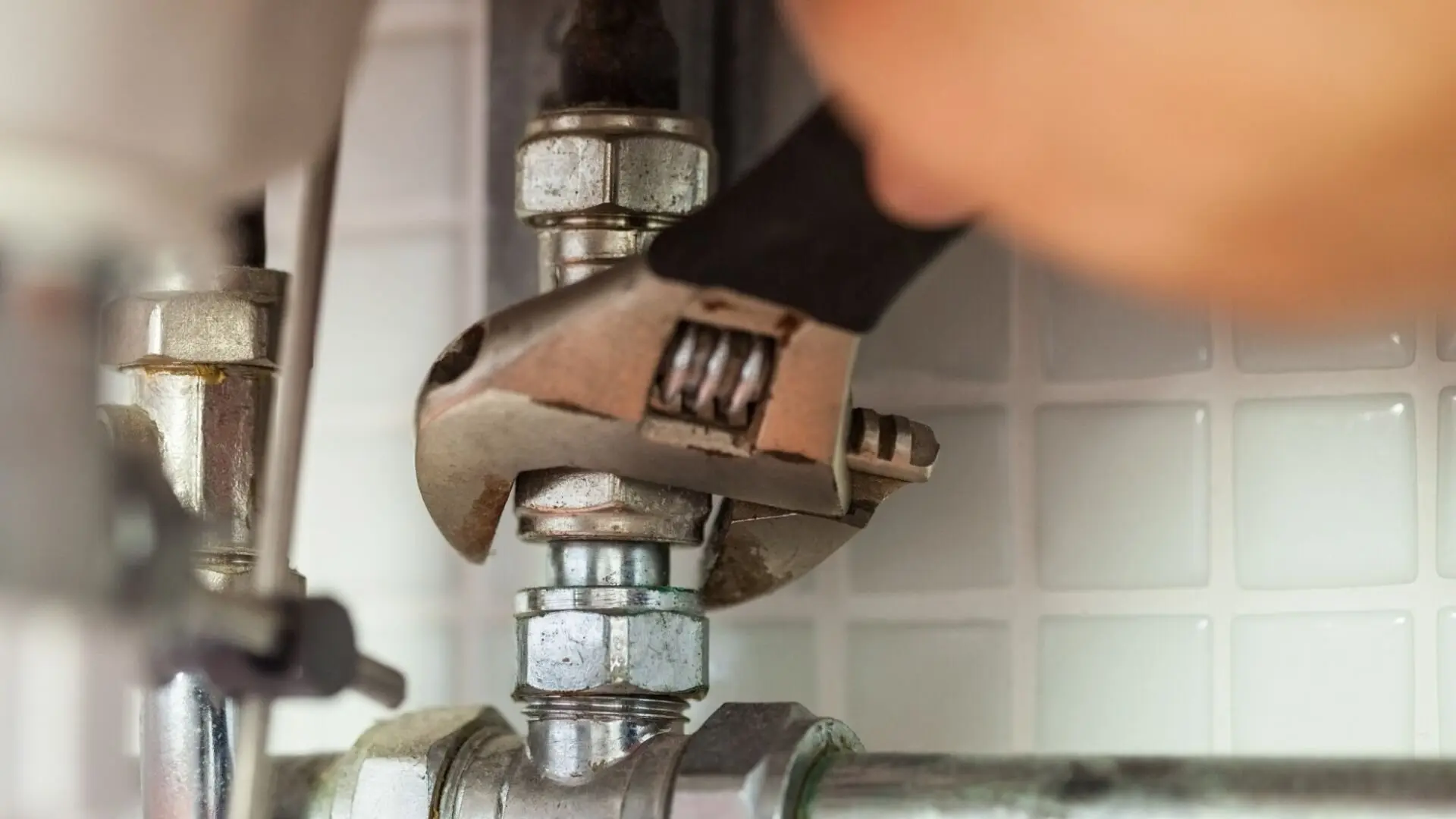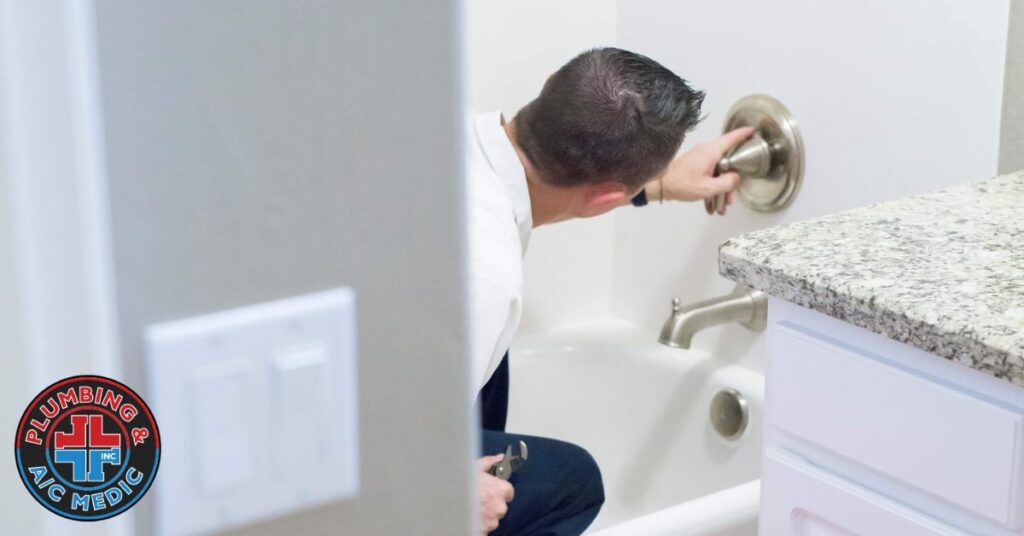Key Bathroom Plumbing Advice for Beginners
Key Bathroom Plumbing Advice for Beginners
Blog Article
They are making several great annotation regarding 11 Must-Read Tips for Plumbing a New House overall in this post underneath.

For brand-new homeowners, understanding and maintaining shower room pipes can conserve both time and money by avoiding expensive problems down the line. Below are some crucial bathroom pipes pointers to aid you maintain every little thing running efficiently.
Acquaint Yourself with the Key Shut-Off Shutoff
Knowing where the main water shut-off valve is located in your home is essential. This allows you to rapidly switch off the water system in case of significant leaks or during pipes emergency situations, stopping comprehensive water damages.
Frequently Examine for Leaks
Tiny leakages can result in big issues. Routinely check under sinks, around commodes, and near plumbing fixtures for any kind of indications of leaks. Search for dampness, tiny drips, or corrosion. Catching and fixing leakages early can prevent much more serious damages and save water.
Don't Neglect Slow Drains
If your sink or bath tub is draining pipes gradually, it's frequently an indicator of a blockage forming. Resolving this early can prevent a complete obstruction. Use a bettor or a plumbing's serpent to clean out particles. Prevent making use of chemical drainpipe cleaners as they can harm your pipes over time.
Know What Not to Flush
Commodes are not garbage disposals. Avoid purging anything besides toilet tissue and human waste. Products like wipes, feminine health items, and cotton swabs must be gotten rid of in the trash to stop obstructions and drain back-ups.
Set Up Strainers in Drains
Place filters in your sink and bathtub drains pipes to catch hair and various other debris prior to they enter your plumbing system. Cleansing the strainers regularly will assist prevent buildup and maintain water moving easily.
Keep Your Water Heater
Guarantee your hot water heater is readied to an appropriate temperature level (generally about 120 levels Fahrenheit) to prevent hot and reduce power use. Flush the tank every year to remove sediment build-up, which can reduce the performance and life expectancy of your heating system.
Upgrade Your Fixtures
If your home has older fixtures, take into consideration upgrading to much more efficient designs. Modern commodes, showerheads, and taps are developed to utilize much less water while providing good pressure, which can substantially lower your water bill and environmental impact.
Beware with DIY Pipes Services
While it's tempting to deal with all home repair services by yourself, beware with pipes. Some problems may call for specialist proficiency, particularly if they include major water lines or sewer repair services. Employing a specialist can occasionally be more cost-effective than DIY, particularly if it protects against further damage.
Plan For Winter
Shield your pipelines from cold throughout winter by shielding pipelines in unheated locations like cellars, attic rooms, and garages. Throughout extreme cold, let cold water drip from faucets offered by revealed pipelines to assist avoid freezing.
Schedule Routine Upkeep
Take into consideration organizing yearly examinations with a licensed plumbing. They can find problems that you could miss, such as hidden leakages or damage on pipelines and fixtures. Regular maintenance aids extend the life of your pipes system and can protect against emergency situations.
Final thought
Comprehending and maintaining your home's bathroom plumbing can protect against lots of typical issues. By following these essential pointers, you can guarantee your washroom stays functional and reliable, conserving you time and money in the long run.
Essential Plumbing Tips for Homeowners: Keep Your Pipes Flowing Smoothly
As a homeowner, understanding the basics of your plumbing system can save you time, money, and a lot of headaches. Plumbing issues can range from minor annoyances like dripping faucets to major problems like burst pipes that cause significant damage. This guide provides essential tips to help you maintain your plumbing system and tackle common issues.
Understanding Your Plumbing System
Supply System: Brings fresh water into your home from a municipal source or a well. Drain-Waste-Vent System: Removes wastewater and vents sewer gases outside. Fixtures and Appliances: Includes sinks, toilets, showers, dishwashers, and washing machines. Basic Maintenance Tips
Regular Inspections: Periodically check for leaks, corrosion, and other signs of wear and tear. Look under sinks, around toilets, and near water heaters. Know Your Main Shut-Off Valve: In case of a major leak, you’ll need to shut off the water quickly. Ensure everyone in your household knows where the main shut-off valve is located. Prevent Frozen Pipes: In cold climates, insulate exposed pipes and let faucets drip during extreme cold to prevent freezing. Use Strainers: Install strainers in sinks and tubs to catch hair, food particles, and other debris that can cause clogs. Common Plumbing Issues and Solutions
Clogged Drains:
Prevention: Avoid pouring grease down the drain and use drain screens to catch debris. DIY Fix: Use a plunger or a plumbing snake to clear minor clogs. For stubborn clogs, a mixture of baking soda and vinegar can sometimes help. Leaky Faucets:
Prevention: Replace washers and seals regularly. DIY Fix: Turn off the water supply, disassemble the faucet, and replace worn parts.

Get Started Report this page